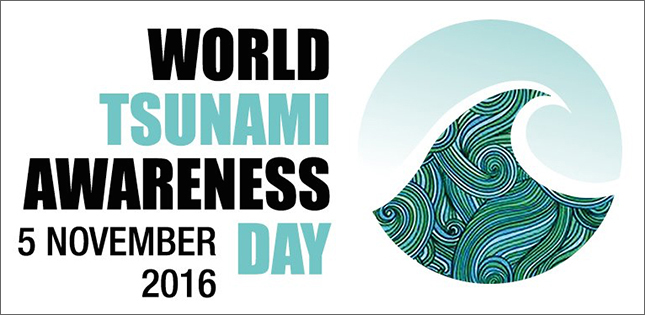Last year, the UN General Assembly designated November 5 as World Tsunami Awareness Day. To commemorate the day, many events and activities have been planned this year.
Tohoku University's International Research Institute of Disaster Science (IRIDeS) has been performing research related to tsunami numerical simulation techniques. The research is drawn from vast experiences from past tsunamis such as the one triggered by the 2011 Great Eastern Japan Earthquake.
For World Tsunami Awareness Day, a report has been compiled featuring the global tsunami hazard assessment based on a 400-year database. The report will be presented first at a special session of the Asian Ministerial Conference on Disaster Risk Reduction in New Delhi on November 2. And then three days later at a World Tsunami Awareness Day event organized by the Cabinet Office of Japan.
The report on the analysis in English can be downloaded from the IRIDeS homepage.
A tsunami is a low-frequency, high-impact natural disaster. The 2004 Indian Ocean tsunami and the 2011 Great Eastern Japan tsunami both caused large numbers of fatalities and damage to wide areas. The high impact is why it is so important to understand the tsunami hazards on a global scale, including regions that are not considered tsunami-prone.
In the report, numerical models for tsunami generation and propagation were created based on 94 earthquake fault models from around the world, over a 400-year time frame. The models were calculated on simulations of tsunami amplitude, fluid force and the arrival time of the tsunami. The tsunami amplitude refers to the height of the wave above sea level. This is determined by the amount by which the sea-floor is displaced following an earthquake.
By comparing data of maximum amplitude simulations from tsunami that occurred over the last 40-50 years (1970-2016) to those that took place over a period of 400-years, it's clear that what are now considered to be tsunami risk regions, differs from the historical evidence.
While the most damaging tsunami between 1970-2016 occurred in the Indian Ocean and East Japan regions, prior to this, dating back to 1600 A.D., tsunamis were shown to have occurred all over the world, especially along the Pacific Rim.
This observation shows the importance of assessing the history of natural disasters, as well as the importance of education on the low-frequency, but ongoing danger of tsunami.
Other findings illustrated the need to include fluid force as a marker to understand the effects and damage of tsunami. Although tsunami height is frequently used to calculate risks, the water distribution from wave height and wave force is different. This means that serious damage may occur at unexpected locations, if only the wave height distribution is taken into account.
It is hoped that the research compiled by IRIDeS on scientific based global tsunami assessment can raise greater awareness, and be used to create countermeasures for tsunamis in the future.
This scientific-based analysis and assessment was performed through a collaboration of Kokusai Kogyo Co., Ltd., Esri Japan Corporation, Tokio Marine & Nichido Fire Insurance Co., Ltd. and Willis Research Network.
Contact:
Fumihiko Imamura and Anawat SuppasriInternational Research Institute of Disaster Science, Tohoku University
Tel: +81-22-752-2090
Email: imamura@irides.tohoku.ac.jp
Email: suppasri@irides.tohoku.ac.jp

